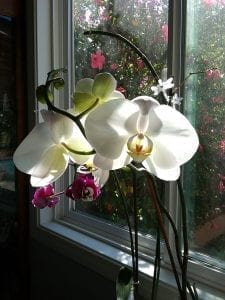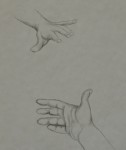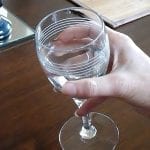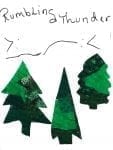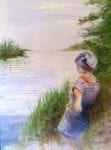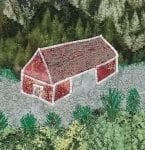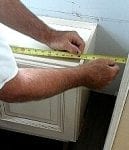Several years ago I wrote that an elderly once said to me people only know what you tell them. My reaction was a gasp! because she believed that. There was no exposure to people more knowledgeable or more observant than she. Although she would adamantly vow her God knew everything and nothing was forever hidden.
Such was her focus. And many can relate to this thinking. Huddled with their own preferred prejudices and religious dogmas which forbid dabbling with so called devilish dervishes, much was undisclosed.
With many who think that minds are private and secrets can be bought with hush money, there are still those who cannot fathom the innocent bystander upon whose head thoughts settle unannounced.
These are the souls who take to the woods and live out lives in solitude, or with the natural world. Or simply close the shutters. People cause fatigue to these innocents who carry information that has no putting place in their lives. Besides, they spook people out. Oh yes, they do.
They become vaults of knowledge with nowhere to dispense it. People will say about them, ‘never knew them other than just in passing. Kept pretty much solitary.’
I have written poetry about subjects like the above and am surprised when I come across the poetry years apart. But interesting are the perspectives and sometimes I find they change little. Many Truths was written in 1986. . . .and Overheard was in an involved work of last week.
Many Truths. . .
I tell you true,
if my eye caught it,
a picture has already
been taken of it.
If I know something
I can tell you true,
the neighbor down the street
or the unknown one
around the corner,
knows of it also.
If my ear has caught your cry,
or the deception in your words,
the heavens have heard the cry
and the deception, however layered,
in time is betrayed by you.
If my song is sung,
the heavens and my god
have heard the melody
and whipped the wind
and carried the joy or sorrow
to its Source.
It has always been so
and this I tell you true.
The difference?
I, now, know it.
November, 1986
Overheard. . .
I hear them say. . .
I cannot follow
what she says all the time. . .
And you say. . .
I don’t either all the time,
so don’t blame yourself. . .
But then I hear. . .
But she says things I know are true
and I think I only
could know them. . .
And you say. . .
that is why she can say
what only you know to be true,
because she has been
to all these places
we don’t understand.
And you say. . .
I can only wonder how long
it took all those doors
to open for her. . . .
June, 2018

